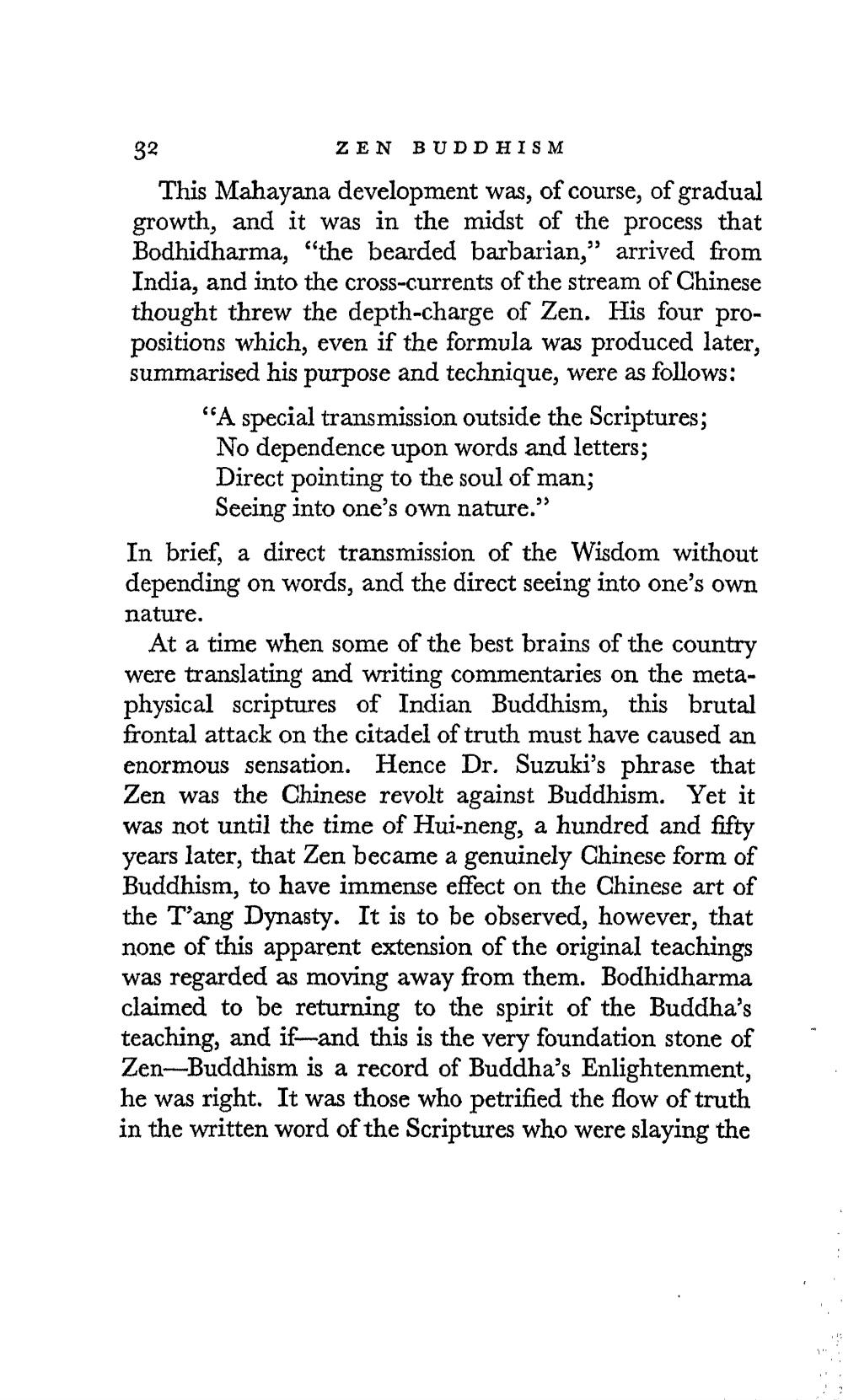________________
32
ZEN BUDDHISM
This Mahayana development was, of course, of gradual growth, and it was in the midst of the process that Bodhidharma, “the bearded barbarian," arrived from India, and into the cross-currents of the stream of Chinese thought threw the depth-charge of Zen. His four propositions which, even if the formula was produced later, summarised his purpose and technique, were as follows:
"A special transmission outside the Scriptures; No dependence upon words and letters; Direct pointing to the soul of man;
Seeing into one's own nature.” In brief, a direct transmission of the Wisdom without depending on words, and the direct seeing into one's own nature.
At a time when some of the best brains of the country were translating and writing commentaries on the metaphysical scriptures of Indian Buddhism, this brutal frontal attack on the citadel of truth must have caused an enormous sensation. Hence Dr. Suzuki's phrase that Zen was the Chinese revolt against Buddhism. Yet it was not until the time of Hui-neng, a hundred and fifty years later, that Zen became a genuinely Chinese form of Buddhism, to have immense effect on the Chinese art of the T'ang Dynasty. It is to be observed, however, that none of this apparent extension of the original teachings was regarded as moving away from them. Bodhidharma claimed to be returning to the spirit of the Buddha's teaching, and if-and this is the very foundation stone of Zen-Buddhism is a record of Buddha's Enlightenment, he was right. It was those who petrified the flow of truth in the written word of the Scriptures who were slaying the




